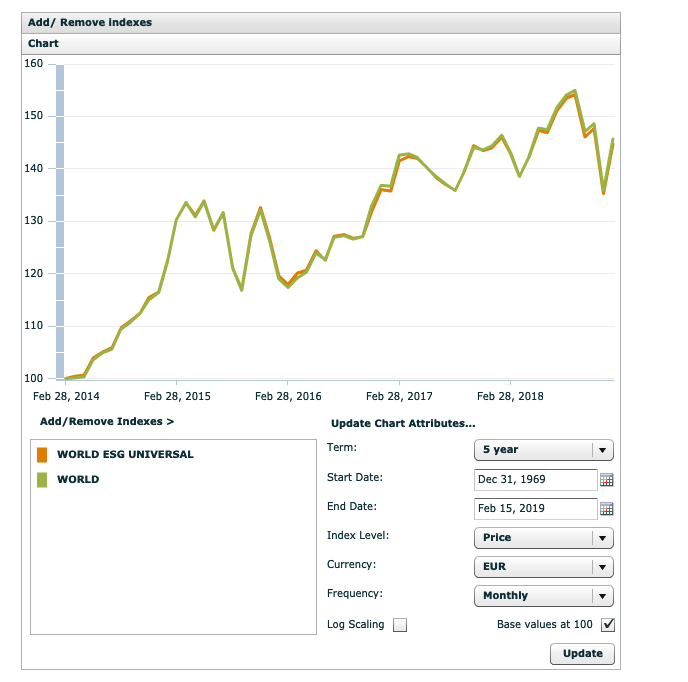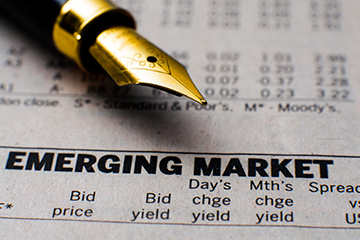Sustainable investing: what, why and how?

Keytrade Bank
keytradebank.be
October 03, 2019
(updated September 06, 2022)
3 minutes to read
Sustainable investing is becoming more important. Over the last few years, sustainable investments have shown double-digit growth. More and more investors are now looking not only at the hard business numbers like profit, growth forecasts, dividends etc. The non-financial aspects are also being weighed up when making the decision to buy shares or bonds: what is this company's environmental track record? How does the company treat its employees? Does the company pay the taxes it owes? And more.
3 letters make all the difference
Sustainable investing is an umbrella term that can include many different ideas. One investor may instantly classify a company as sustainable because it delivers Fairtrade coffee to his breakfast table. Another investor, on the other hand, believes that you are only investing sustainably when a company has nothing to do with weapons. There are as many different opinions about sustainable investing as there are investors. At least, that used to be the case. In recent years, investors have become more unanimous in saying that they need to look not just at the "coffee and guns" but rather at the "total package". Nowadays, that is neatly summed up in 3 letters: ESG. ESG is shorthand for a collection of criteria in the areas of Environment, Social and Governance.
Sustainable = future proof
Why these 3 particular aspects? Simple. Companies that score well on these aspects are expected to perform better in the long term than companies that ignore ESG criteria. Companies who are responsible in the way they treat the environment can expect greater approval from their customers. Satisfied employees will lead to less absenteeism due to sickness, and better productivity. And companies who do business ethically are less likely to be hit by fraud-related scandals. A company's ability to comply with ESG standards is an aspect that defines its future performance. Although these aspects have received more insistent attention in recent years (for example, from the climate crisis movement), many economists believe this trend is more than just a fashion.
How do I get started?
The simplest way to invest sustainably is through sustainable investment funds. A fund invests in tens or hundreds of shares or bonds simultaneously. That is always easier (and cheaper) than buying all these shares and bonds individually. In addition, the fund manager does the homework for you: based on a variety of sustainability criteria, he selects the shares and bonds for the fund that he expects to have the greatest potential. A fund manager can take various approaches here:
- Exclude companies that take little notice of the ESG rules or who are involved in controversial sectors (weapons, tobacco, coal).
- Select "best-in-class" investments: companies with the highest ESG score compared to their competitors in a given sector.
- As a shareholder, attend the companies' annual general meetings to promote ESG values.
In practice, most funds will use a combination of these three approaches. The simplest way for you to invest in sustainable funds yourself is through a regular investment plan. You can do this from as little as EUR 25 per month.
What about the returns?
Does sustainable investing deliver results for both the environment and society? But do I gain anything from it as an investor? Many investors still believe that sustainable investments deliver lower returns. The figures in fact show that there is no basis to this assumption. Data from MSCI - a vendor of company data to share indices - shows that a basket of ESG shares worldwide over the last 5 years performed almost as well as "normal" shares (see illustration). Almost all studies - and by now there are hundreds of them - show that, in the longer term, sustainable investing can be just as profitable, and even involves lower risks. Companies who actually run less chance of additional costs from things like environmental damage, strikes or legal inquiries, are indeed less risky. Sustainable investing therefore can be good not only for the environment and society, but also for your own pocket.
ESG shares have performed over the last 5 years at almost the same level as "normal" shares

MSCI World ESG Universal is a global index that comprises 1,601 shares of companies with a strong ESG policy in 23 markets. This index has only existed since 2014. MSCI World is a global index that comprises 1,623 shares of large, exchange-listed companies in 23 markets. >>This data can be found at: Data te vinden op: https://www.msci.com/end-of-day-history


